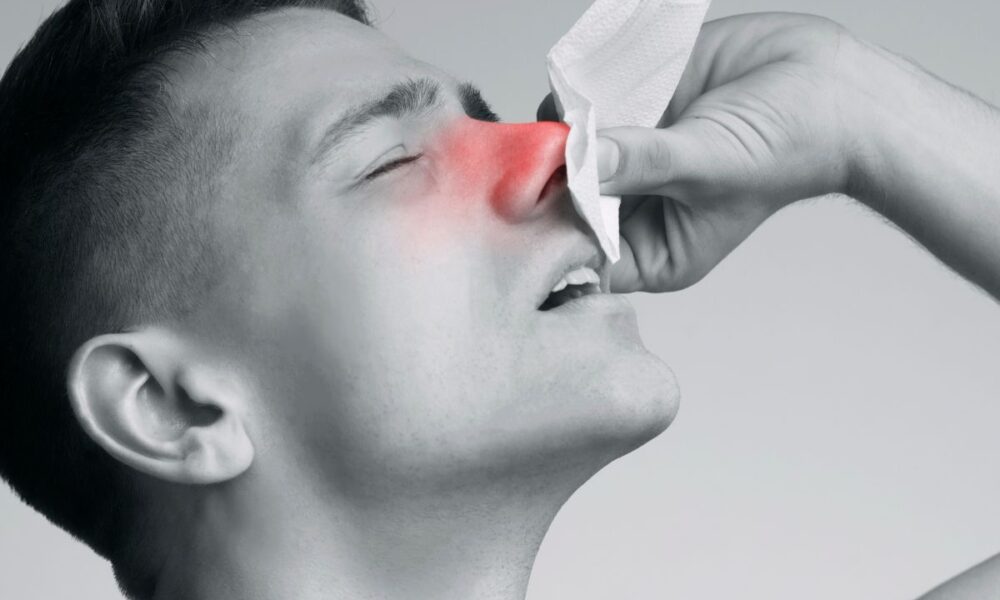Nasal polyps are noncancerous growths that develop in the lining of the nasal passages or sinuses. They are soft, painless, and typically occur in both nostrils. Here are more details about nasal polyps, including symptoms and treatment:
Symptoms:
- Nasal Congestion: Persistent stuffiness or blockage of the nasal passages.
- Runny Nose: Chronic postnasal drip, with mucus draining down the back of the throat.
- Reduced Sense of Smell and Taste: Nasal polyps can obstruct airflow and impair the ability to smell (hyposmia) and taste (hypogeusia).
- Facial Pressure or Pain: Discomfort or fullness in the face, particularly around the eyes, cheeks, or forehead.
- Snoring: Nasal obstruction caused by polyps can contribute to snoring and disturbed sleep.
- Headaches: Recurrent headaches, particularly those associated with nasal congestion or sinus pressure.
- Itchy Eyes: In some cases, nasal polyps may cause irritation and itching of the eyes due to associated allergies or sinus inflammation.
Causes:
- The exact cause of nasal polyps is not fully understood, but they are commonly associated with chronic inflammation of the nasal passages and sinuses, often related to conditions such as:
- Allergic rhinitis (hay fever)
- Chronic sinusitis
- Asthma
- Aspirin sensitivity (Samter’s triad)
- Genetic factors and immune system dysfunction may also play a role in the development of nasal polyps.
Treatment:
- Medications:
- Nasal Corticosteroids: Steroid nasal sprays reduce inflammation and shrink nasal polyps, often the first line of treatment.
- Oral Corticosteroids: Short-term oral steroids may be prescribed for severe symptoms or to reduce the size of polyps.
- Antihistamines: These medications can help manage allergy symptoms associated with nasal polyps.
- Leukotriene Inhibitors: These drugs may be used in individuals with aspirin sensitivity or asthma.
- Nasal Irrigation: Saline nasal rinses or irrigations can help clear mucus and reduce inflammation in the nasal passages.
- Allergy Management: Avoiding allergens and using allergy medications can help control inflammation and reduce the risk of nasal polyp recurrence.
- Surgical Treatment:
- Endoscopic Sinus Surgery: Surgical removal of nasal polyps may be recommended for individuals who do not respond to medications or have large polyps causing significant symptoms.
- Functional Endoscopic Sinus Surgery (FESS): This minimally invasive procedure allows the surgeon to access and remove polyps and diseased tissue using an endoscope, often performed as an outpatient procedure.
- Biological Therapies: In some cases, biologic medications targeting specific inflammatory pathways may be used to manage severe or recurrent nasal polyps.
Follow-Up Care:
- Regular follow-up appointments with an ENT specialist are important to monitor the effectiveness of treatment, assess for polyp recurrence, and adjust treatment as needed.
- Lifestyle modifications, such as avoiding environmental triggers and practicing good nasal hygiene, can help manage symptoms and reduce the risk of polyp recurrence.
Overall, treatment for nasal polyps aims to reduce inflammation, alleviate symptoms, and improve nasal airflow and quality of life for affected individuals. It’s essential to consult with a healthcare professional for proper diagnosis and management based on individual circumstances.

